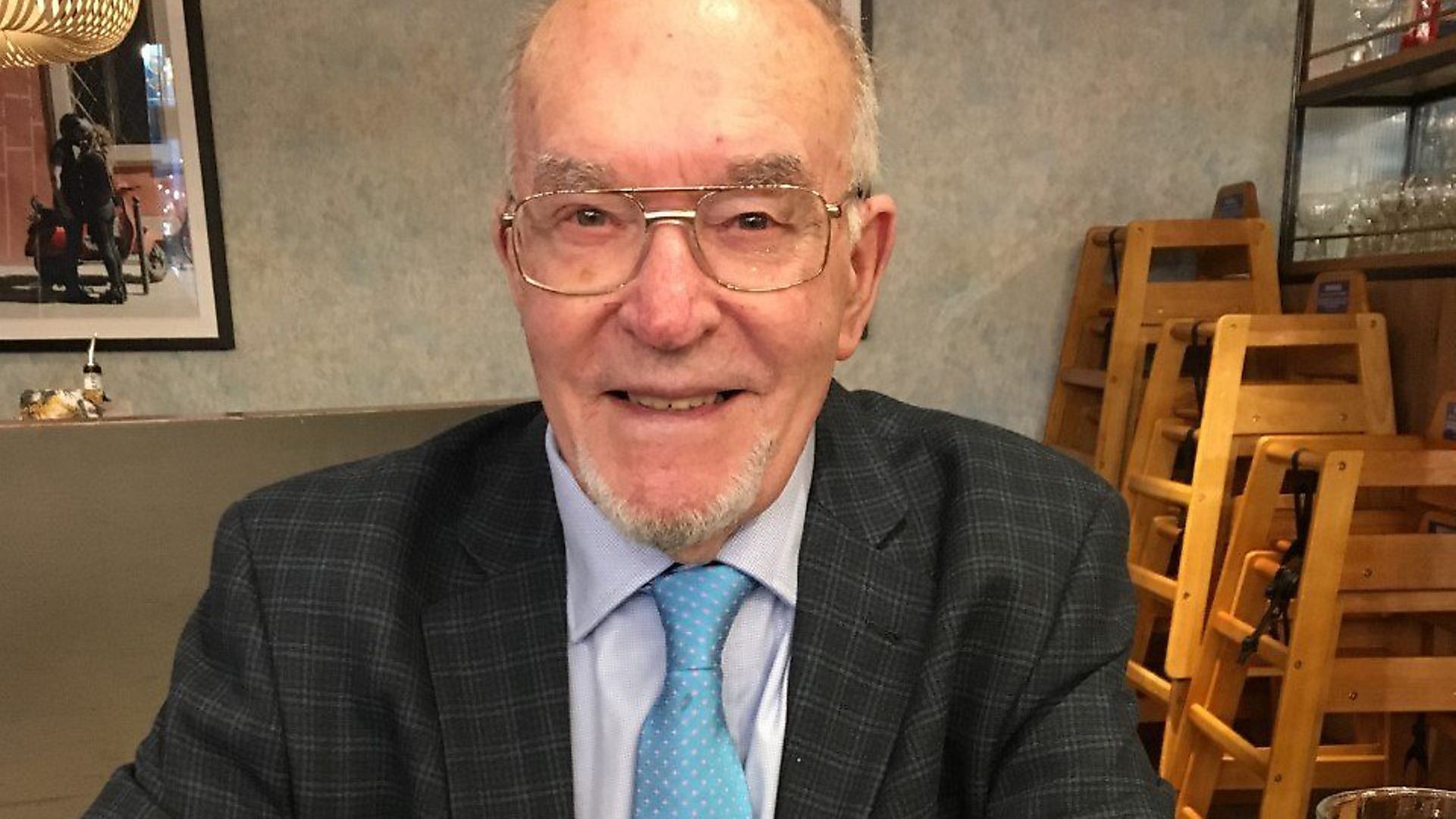
MITCH BENN on a death which represents far more than a statistic.
I met Harry McFarlane in the late summer of 2018, when my girlfriend Leslie – Harry’s granddaughter – and I called in at her old hometown of Prestwick on our way back from that year’s Edinburgh Festival.
Harry was on good form that evening; he was genial, interested, and seemed to my eyes at least to be a good decade and a half younger than his then 89 years.
I met Harry again in March 2019 at his 90th birthday party. He’d moved into a nursing home in Ayr a few months previously; upon arrival, he’d instantly set about organising musical recitals and concerts for the residents. Harry was a lifelong musician, composer and choirmaster.
Harry had devoted his life to two things: his family and music. He was the eldest of 13 siblings, three of whom died in infancy. As a child in Ayr he showed prodigious musical talent, especially on piano, and after spells in a seminary in France (wherein he decided the priesthood was not for him) and the army (likewise) he settled upon teaching music as a career, or rather as a vocation.
Over the following decades Harry conveyed his irresistible love of music to countless pupils, including, by his own reckoning, ‘seven priests and seven murderers’.
Harry composed many liturgical and secular pieces; in 1976 he wrote the music for a mass led by Pope Paul VI at the Basilica of St Paul Outside the Walls in Rome, to celebrate the canonisation of the Scots Catholic martyr St John Ogilvie.
Just last year, aged 90, Harry composed A Lament For The Children Of Hiroshima, a solo violin piece which was played in Hiroshima’s Peace Garden on the anniversary of the bombing; the first time music had been performed in that hallowed site.
Towards the end of 2019, Harry wrote and published a memoir, Music: Enhancer Of Life, commissioning a small print run of 50 copies which he managed to sell out instantly.
Harry celebrated his 91st birthday on March 31 as best he could under lockdown; exchanging video messages with his many loving relations. Before being confined to his nursing home he would often, alone and unaided, take the bus to visit Margaret, his beloved wife of 66 years, who lives in another nursing home a few miles away.
A couple of weeks after his 91st birthday Harry was taken ill with a chest infection. He tested positive for Covid-19 and was isolated in his room, unable to see Margaret one last time. His daughter Anne (Leslie’s mum) was lucky enough to obtain a full PPE kit and was allowed to visit him on what turned out to be his final day. Shortly before midnight on Friday April 17, Harry McFarlane – ‘Wee Harry’ – died.
A devout Catholic, Harry passed away in the certain belief that he was going to a better place, to be reunited with the many friends and relatives he’d outlived (including his own eldest daughter Clare). His funeral will be, by necessity, a perfunctory affair; plans are afoot for a more worthy memorial service to be held once lockdown ends.
There are hundreds of long, storied lives ending much as Harry’s did, every day. They are nameless, faceless, voiceless, numbers left uncounted.
Why are they not deemed worthy even of being a statistic?
I’m always loath to ascribe to conspiracy anything which ineptitude explains, but there’s no doubt that our embattled administration would prefer not to see the hundreds, perhaps thousands of deceased elderly and care home residents added to the already heartbreaking UK death toll.
But it’s our own unconscious prejudice as a society which lets the government off this particular hook. The idea that people who have made it to 80 or so are living intrinsically less valuable lives; that their contribution to – and enjoyment of – life and the world around them is less meaningful, purposeful and important, simply by virtue of their years spent on the planet.
This prejudice helps drive the narrative that our fellow elderly citizens are simply ‘taking up space’, fading away, soon to be gone anyway, a burden for the rest of us to grumblingly endure.
They couldn’t possibly be, say, composing music, or writing a book, or organising concerts at 90, as Harry was. Running around London on a whirlwind adventure of symphony orchestras, shows and museums at 89, as Harry was. Being every bit as alive, as vibrant and as valuable to their community at 90 as they were at 40 or 50 – as Harry was.
Our nameless, faceless, uncounted elderly and care home victims of Covid-19 deserve recognition.
Their numbers must be totalled, their names known and their stories told. That’s a change we can choose to make for ourselves, right now, without waiting for the powers that be to implement it.
If you have elderly relatives, I hope you’re finding some way to stay in touch with them. And when you call them next, don’t just do so out of some grudging sense of duty.
Do so because they’re worth talking to. And, moreover, worth listening to.
Sleep well, Wee Harry. It was an honour getting to know you.
If you’d like to read Harry’s memoir, it’s available from lulu.com.










